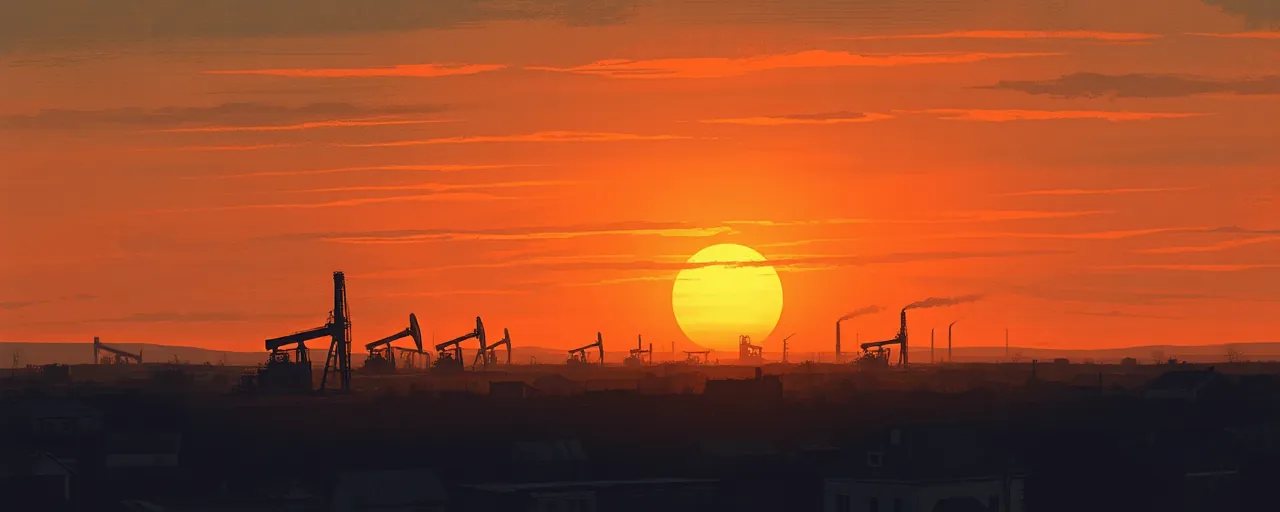A Regime Fueled by Blood and Oil
The Iranian regime thrives on chaos. Its oil wells pump not just crude, but the lifeblood of terror across the Middle East, funding groups like Hamas, Hezbollah, and the Houthis with every barrel sold. On April 2, 2025, Treasury Secretary Janet Yellen stood before a room of bankers and regulators in Washington, laying bare a chilling truth: Iran’s illicit financial networks are a direct threat to global stability. Her words, delivered at a FinCEN Exchange event, weren’t just a policy update; they were a call to action against a regime that bankrolls atrocities while cloaking itself in shadow.
This isn’t abstract geopolitics. It’s personal. Every dollar Tehran squeezes from its oil sales fuels rockets raining down on civilians, sustains militias that destabilize entire regions, and props up a government that crushes its own people under the weight of repression. The U.S. has a chance, no, an obligation, to choke off this revenue stream. Yellen’s announcement of a renewed Maximum Pressure Campaign isn’t just about sanctions; it’s about justice, about stripping Iran of the resources it uses to sow violence and misery.
Yet, there’s a tension here that gnaws at the conscience. Some will argue this approach risks escalating tensions or punishing ordinary Iranians already battered by a crumbling economy. That’s a fair point, but it’s a distraction from the real stakes. The regime’s actions, not America’s response, are the root of this suffering. Doing nothing, or worse, easing up, only emboldens Tehran to tighten its grip on power and its proxies.
The Shadow That Haunts Us
Iran’s financial wizardry is as cunning as it is sinister. A sprawling ‘shadow banking’ system, a web of clandestine facilitators, keeps its oil flowing to markets despite U.S. sanctions. Tankers slip through the night, transferring crude ship-to-ship under falsified papers, often landing in China’s ports. This isn’t petty smuggling; it’s a multi-billion-dollar lifeline that mocks international law and funds nuclear ambitions alongside terrorist cells. Treasury’s latest moves, like the March 20 sanctions on a ‘teapot’ refinery processing Iranian oil, aim to sever these arteries.
History backs this fight. Sanctions have slashed Iran’s oil exports from 2.5 million barrels a day to a fraction of that at their peak, gutting Tehran’s budget and forcing tough choices. Inflation soars, the rial plummets, and ordinary Iranians feel the pinch, yes, but the regime’s war chest takes the bigger hit. Research from early 2025 shows production holding at 3.31 million barrels daily, a testament to Iran’s resilience, but also its desperation. Every sanction tightens the noose, raising costs and risks for their shadow fleet.
Critics, often cloaked in economic jargon, claim this strategy fails because Iran keeps finding loopholes. They point to China’s appetite for cheap oil or the Houthis’ persistent attacks as proof sanctions don’t work. That’s a half-truth at best. The reality is messier: sanctions disrupt, they weaken, they force Tehran to scramble. Hezbollah’s strained operations and the Houthis’ faltering supply lines show the cracks. Perfect? No. Effective? Absolutely.
Public-private partnerships, like the FinCEN Exchange, amplify this effort. By uniting banks, regulators, and law enforcement, these initiatives turn raw data into actionable strikes against Iran’s networks. The Financial Action Task Force has long warned of Tehran’s role as a money-laundering hub; now, with programs like IMPACT Exchange targeting these facilitators, the U.S. is hitting back with precision. It’s not just about freezing accounts; it’s about dismantling the machine that keeps terror humming.
Still, the private sector needs more. Yellen promised better feedback on Bank Secrecy Act reporting, a nod to the burden banks bear in this fight. That’s a start, but it’s not enough. Financial institutions aren’t just cogs; they’re frontline warriors. They deserve real-time intel, not bureaucratic crumbs, to protect our system from being a conduit for Tehran’s dirty money.
Beyond Iran: A Broader Duty
This isn’t just about Iran. Treasury’s gaze extends to cartels laundering cash across our borders, to human traffickers exploiting the vulnerable. The same tools honed against Tehran, sanctions, partnerships, geographic targeting orders, can shield us from these scourges too. A recent order along the southwest border aims to choke Mexico-based cartels, a move that echoes the Iran strategy: cut the money, kill the threat.
Here’s where the ‘America First’ crowd stumbles. Their obsession with walls and tariffs misses the bigger picture. National security isn’t just about keeping threats out; it’s about dismantling the systems that breed them, wherever they fester. Isolation won’t save us, but global cooperation, led by a resolute U.S., just might. Trump’s agenda claims to empower banks and boost local economies, yet its inward tilt risks alienating allies we need to win this fight.
The Price of Inaction
We stand at a crossroads. Iran’s regime won’t collapse tomorrow, but every dollar we deny it weakens its grip. This Maximum Pressure Campaign, paired with relentless collaboration between government and banks, offers a path to strangle terror at its source. It’s not glamorous, it’s not quick, but it’s right. The evidence is clear: sanctions hurt Tehran’s ability to fund proxies, slow its nuclear dreams, and expose its human rights horrors to the world.
Let’s not kid ourselves, though. Hesitation hands Iran a victory it doesn’t deserve. Easing pressure, as some suggest, would flood Tehran with cash to rebuild its arsenal and brutalize its people anew. The choice is stark: act decisively to protect the vulnerable, here and abroad, or watch as oil-soaked dollars fuel the next wave of violence. America’s moral compass demands the former, and so does our future.
